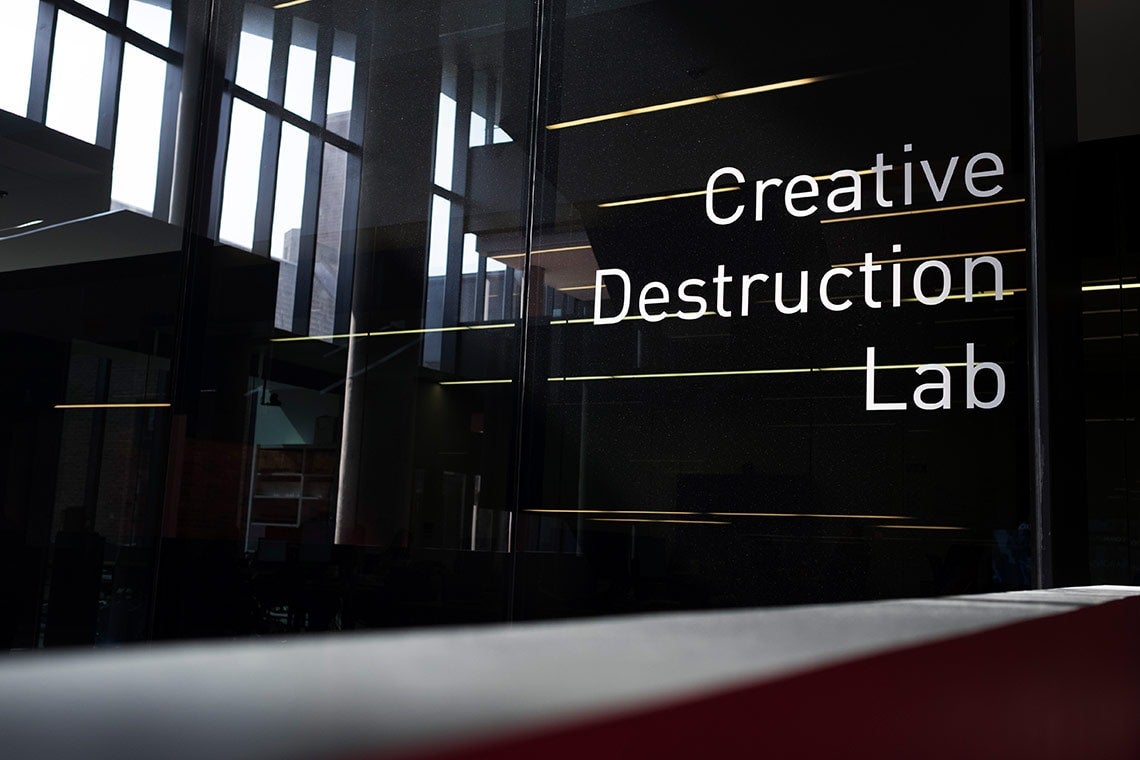5 Questions With Imran Kanga, Rotman’s MBA Director of Admissions

In our latest installment of the MetroMBA “5 Questions” series, we speak with Imran Kanga, Director of Recruitment & Admissions of the full-time MBA program at the Toronto Rotman School of Management. Kanga discusses what students should know before applying and the culture of the program.
What type of MBA student flourishes at Rotman?

Imran Kanga, Director of Recruitment & Admissions of the full-time MBA program.
“Students who flourish in the Rotman full-time MBA program are highly driven and motivated individuals who have demonstrated leadership potential and academic excellence in their prior work and education. Our students also demonstrate excellent communication and interpersonal skills and thrive in a team environment, which not only is a significant part of the program but also sets them up for success in the workplace after graduation.”
What should prospective students know about the Rotman MBA program before they apply/start?
“The Rotman MBA program is a big commitment, both in terms of time and money. I would encourage prospective students, before they apply or start the program, to thoroughly research the program, the university, the city, and the career opportunities that potentially await them. It is important for them to speak to faculty, alumni, our career coaches, current students, and also the admissions team to understand what the requirements are and what they can expect from the program.
The FT MBA program is extremely rigorous and demanding, but it is also a very rewarding experience, and students need to be prepared before starting the program.”
What makes Rotman stand out amidst other Canadian MBA programs?
“There are so many factors that distinguish the Rotman MBA from other Canadian programs. To focus on a few…
- Being part of Canada’s largest and top-ranked University, Rotman MBA students enjoy the benefits of not only all the resources that the business school offers but also the University of Toronto as a whole. This includes being part of an extended global alumni network and a strong brand that is globally recognized.
- Our location in the heart of the largest city in Canada gives our students unfettered access to the largest business network in the country.
- Rotman also has some unique labs such as the Creative Destruction Lab, which supports startups in technology and disruptive innovation to scale and also gives our students the opportunity to work with these companies. Our one of a kind Self-Development Lab uses advanced technology and analytics to help students improve their soft skills such as communication, negotiation and presentation skills.”
How would you describe the culture of Toronto Rotman?
“The culture at Rotman is very much student success driven. Faculty, staff, alumni, and various other stakeholders work closely with students throughout their MBA journey to ensure that they are set up for success both during and after the MBA program.
At Rotman, we are also extremely committed to diversity and inclusion. Our students are extremely diverse, coming from all over the world and have different education and work backgrounds, which fosters a culture of knowledge sharing, support, and collaboration.
Our Dean Tiff Macklem is focused on continuous improvement, innovation, thought leadership, and research excellence, which is also central to Rotman’s culture.”
Where is your favorite place to visit in Toronto? Why?
“As a foodie, my favorite area of Toronto is the downtown core, which has a wide variety of restaurants and cuisines from all over the world, owing to the city’s incredibly diverse population.”
U. Toronto Invests in Rotman Innovation, Data, and Entrepreneurship

Innovation, entrepreneurship, data, and analytics all play significant roles at the University of Toronto’s Rotman School of Management. As a global center for research and academic excellence in business and society, Rotman is known for bringing together diverse views and initiatives. So, it should be no surprise that this month the Rotman School announced increased investment, from different sources, in three areas:
- $25 million in funding for the Creative Destructive Lab (CDL)
- $4 million in new funding for data and analytics initiatives
- $2.5 million to the Creative Destructive Lab Health Stream and additional financial resources in support of the Behavioral Economics in Action at Rotman (BEAR) research center.
Creative Destruction Lab Receives $25 Million

Founded in 2012, the Creative Destruction Lab (CDL) was created to address failure in the market for judgment. As a seed stage program, its goal is to help science-based companies become scalable by pairing founders with experienced entrepreneurs and investors. The nine-month program covers everything from commercialization of products to R&D and maximizing equity-value creation.
To increase the CDLs ability to help young companies, the Canadian government announced a $25 million investment in the program. The investment will allow the CDL to accelerate the commercialization of science in Canada while hopefully also attracting more investment in ventures and more intellectual property. Over four years, the CDL will help more than 1,300 science-based ventures and could create up to 22,000 new jobs.
In a recent press release, Minister Bains says:
“Creative Destruction Lab’s exciting project promises to unleash a new wave of start-up innovation across Canada, creating thousands of middle-class jobs and further securing Canada’s position as a world leader in the AI field. Our government is proud to make investments that will help turn hundreds of innovative ideas into the good jobs and companies of tomorrow.”
The investment will also help the CDL gain insight into the success of science-based startups. In particular, ventures harness new technologies such as AI, energy, health, smart cities, and space and quantum technologies will be targeted. There will also be a boost for young women in science, technology, engineering, and math (STEM) fields in the hopes of inspiring representation in the next generation of business leaders.
“This is a tremendous moment,” Tiff Macklem, Dean at the Rotman School, says. “Thank you Minister Bains, the Government of Canada and everyone that saw the vision and opportunity of the Creative Destruction Lab.”
The investment was made through the Strategic Innovation Fund; a program focused on attracting and supporting high-quality business investments across all sectors of the economy.
$4 Million for Data and Analytics

Data and analytics are an essential area of study at the Rotman School as evidenced by the launch of the new Master of Management Analytics (MMA) program as well as the TD Management Data and Analytics Lab. So, it makes sense that when the TD Bank Group (TD) was looking for a way to support the Rotman School, they decided to give $4 million in funding to explore real-world data and analytics applications.
Christian Nelissen, TD Senior Vice President of Enterprise Data and Analytics, says in a news release:
“Data and analytics are the engines powering the future of Canada’s economy. That new reality means building talented teams that have a deep understanding of the potential of data and analytics, in financial services and beyond. We are looking for visionaries who can see what’s possible—things we might not even have thought of yet.”
Specifically, the funding will go toward development and staffing of the TD Management Data and Analytics Lab, which launched in 2017. The goal of the investment is to improve student development and engagement in data and analytics, and to add expertise and resources for industry projects and cutting-edge analytic thinking. The Lab also offers workshops, hackathons, guest speakers, academic collaboration, and seed funding for the Rotman FinHub.
“By collaborating with TD, we are giving students the opportunity to engage in data-focused problem-solving,” Dean Macklem says. “We know our students are eager to take on new roles in the evolving field of data and analytics and this generous investment will allow us to move more quickly to further expand our data analytics programming and opportunities.”
Investing in Healthcare Innovation & Behavior Economics

Last, but certainly not least, TD Bank Group announced additional investments in two initiatives: innovation in healthcare and behavioral economics.
The first investment from TD is $2.5 million over five years for the Creative Destruction Lab Health Stream, which focuses on biotechnology, bioinformatics, diagnostics, and digital care. This investment will help aspiring entrepreneurs bring technological innovations to the market in the healthcare industry.
Andrea Barrack, TD’s Vice President of Global Corporate Citizenship, says:
“We know that the long-term success of our business depends upon the resilience and health of the people we serve. We’re thrilled to support the CDL with this contribution, which will help accelerate advances in healthcare through fresh thinking and entrepreneurship. At TD, we have a history and meaningful purpose of helping to enrich the lives of customers, colleagues and communities.”
The second investment from TD comes in the form of an agreement to bring additional behavioral finance resources and applications in support of the Behavioral Economics in Action at Rotman (BEAR) research center. As a founding member of BEAR, TD hopes to be able to better examine and research the underlying emotion and behaviors that push financial decision making. Also, the investment will help continue to implement behavioral finance tools into wealth management.
“Being one of the founding members of BEAR will further contribute to TD’s commitment to advancing the study and real-life applications of behavioral finance,” says Dave Kelly, Senior Vice President of TD Wealth. “The work we have done to-date with Rotman has been instrumental in enhancing the advice and services our advisors provide to our clients. Research by BEAR will enable us to better understand the underlying factors that help drive financial decision making so we can connect with our clients on a deeper, more meaningful level.”
Rotman School Weighs In on Canadian AI

Before Google, Amazon and Silicon Valley took advantage of the artificial intelligence boom, Canada actually laid the groundwork. In fact, it was a handful of Canadian researchers—backed by the Canadian government and universities—that helped to produce a growing number of artificial intelligence startups. Unfortunately, many of Canadian AI scientists have been lured away from Canada by fat paychecks from Google, Facebook, Apple and other companies. Continue reading…
